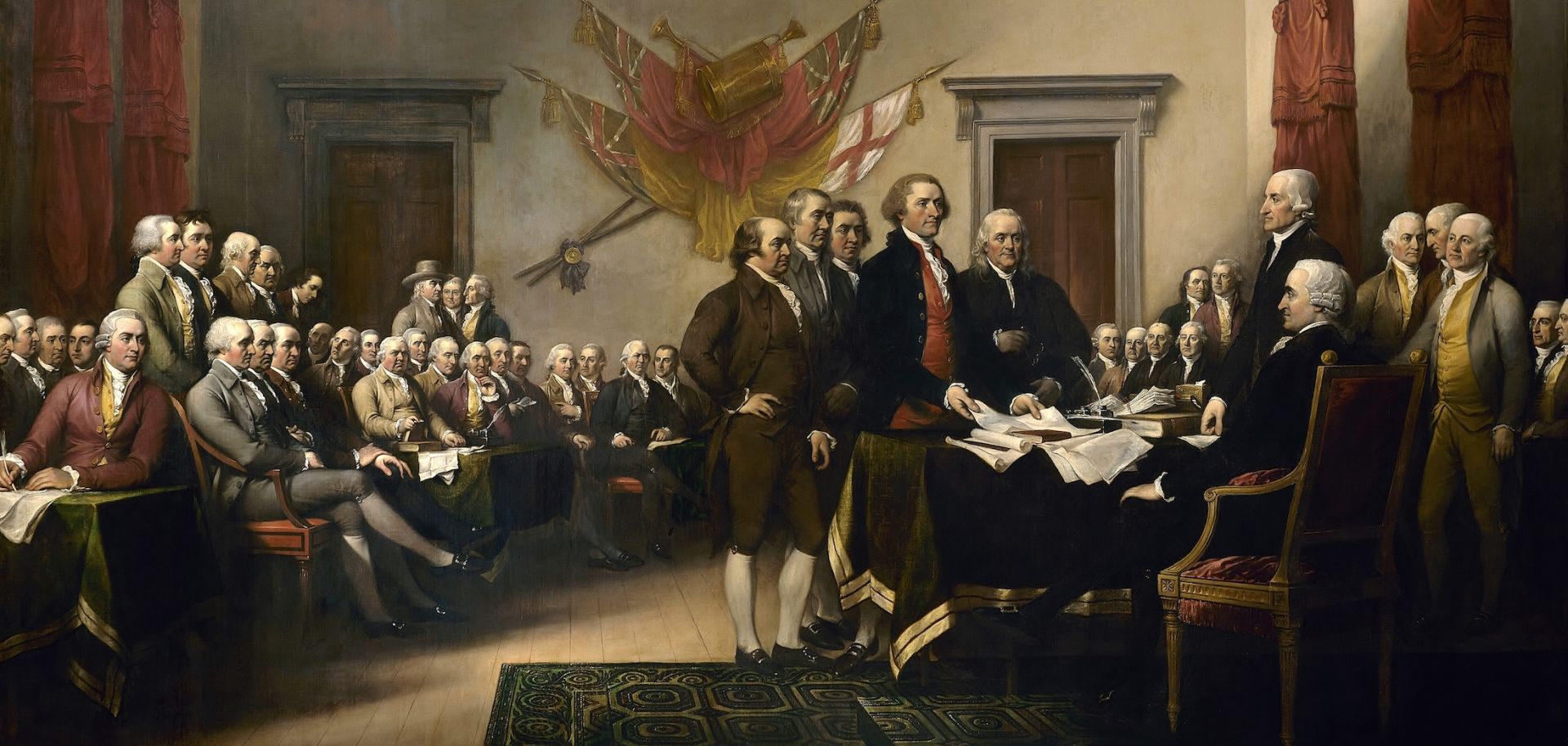GLOBAL PERSPECTIVES
America the Old-Fashioned: How Clinging to the Past Propelled the U.S. Forward

Sep 13, 2018 | 09:00 GMT

The presentation of the Declaration of Independence, as depicted in a painting by John Trumbull. Adherence to the ideals underpinning its founding helped propel the United States to the top of the world order, and like other great powers of history, it has stuck to its traditional values.
(Wikimedia Commons)
Highlights
- Despite its reputation for modernity and progress, the United States has preserved many cultural and political customs that often seem outmoded to foreigners.
- The disparities between genders, races and classes in the country, along with the rate of violence, sets it apart from the world's other wealthy democracies.
- From a historical perspective, though, the United States' commitment to conserving ostensibly old-fashioned values and traditions puts it in league with other great powers, including the Persian and Roman empires, China under the Qin Dynasty, 17th-century England, and Japan following the Meiji Restoration.
Subscribe Now
SubscribeAlready have an account?
